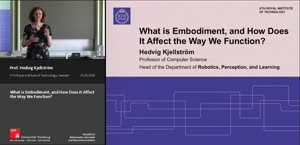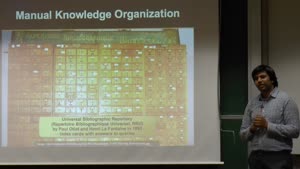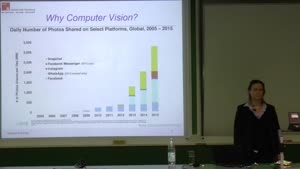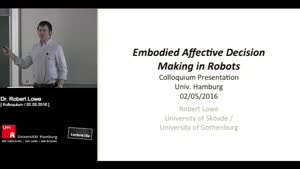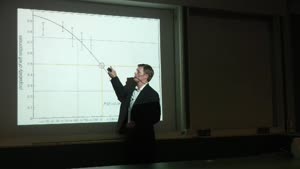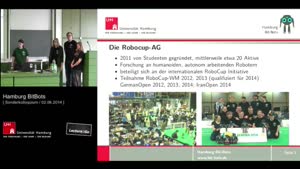Embodied Affective Decision Making in Robots - Dr. Robert Lowe - University of Hamburg
- Lecture2Go
- Catalog
- F.6 - Mathematik, Informatik, Naturwissenschaften
- Informatik
- Informatisches Kolloquium
Catalog
Embodied Affective Decision Making in Robots
The importance of the role of affect (e.g. drives, motivations, emotions) in decision making has been increasingly recognized by researchers in the fields of neuroscience and psychology in recent years. It has also been of contemporary interest to roboticists with a focus on issues concerning ‘embodiment’. In this talk, I will present work carried out over several projects that focuses on affective mechanisms used to guide decision making in robots. This talk will consist of two parts covering past and recent research in the area of embodied affective decision making in robots. In the first part, drawing from examples of my own, and my PhD students’ work, I will provide examples from evolutionary robotics and human-robot interaction as to how affective mechanisms can be exploited in robotics to produce adaptive behavior and decision making, i.e. that which is not the direct product of learning. In the second part, I will discuss recent work on tactile interaction between humans and robots. The ability to reliably convey and interpret emotional signals through touch (as a form of embodied affective interaction) provides an important source of information for appropriate social decision making. Recent results from a human-robot tactile interaction study will be presented that show how emotions can be expressed according to a number of different dimensions amenable to tactile sensing.























